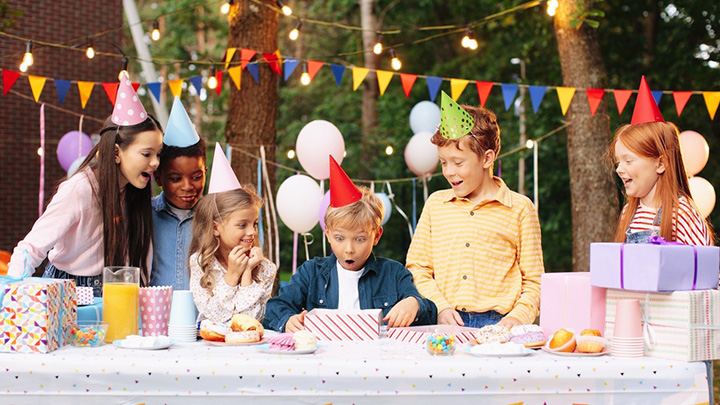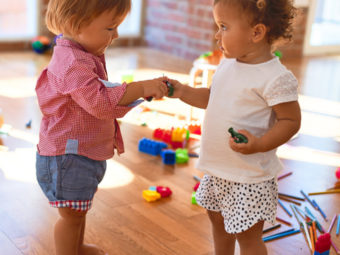
Image: Shutterstock
From the conception of your kids, as a parent have done everything you can to provide only the best for your children. You provide them with hot healthy meals, a roof over their heads, good education, clothes and toys and anything else your child might desire. And although providing for your child is your job as parent, your little one must learn to be grateful for all the things you do for them and all the sacrifices you make in the process. Learning the skill of gratitude is an important life lesson. Without it your children will grow up to be entitled and ungrateful which can be detrimental to their social and professional lives. So, how do you teach your kids to not take everything for granted? Read on to know a few tips!
1. Become Their Role Model
Your children are going to start feeling grateful for everything you do for them when they respect you and the decisions you make. This is why it is important for parents to set an example of a respectable and responsible adult. Someone they can look up to and admire. If you want your kid to not take you for granted, you may want to cultivate a feeling of gratitude in them. Keep in mind that kids mostly learn through observation. So if you want them to be more grateful, start by showing your gratitude towards your own parents or the people in your community. Set the example and they will follow.
2. Teach Your Kids Empathy
Your children must be taught how their behavior can impact someone else. You can do this by pointing out something they said that hurt you or made you think of them as ungrateful. Your kids need to know that even if they didn’t get the exact same toy they wanted for Christmas, you still managed to get them something they’d like. You can also try quoting examples from books and movies, to teach them empathy. Ask them questions like, “What that boy said was very hurtful. How do you think his mom felt?” In this way not only do you teach your child to identify and label words related to feelings but they will be cautious not to come off as selfish or ungrateful for the things they have.
3. Point Out Their Ungrateful Attitude
Image: Shutterstock
没有父母喜欢伤害孩子的感情you have a responsibility as a parent to correct them, especially when they are clearly in the wrong. And acting entitled and ungrateful is never the right response. If this seems harsh to you, keep in mind that you as their parent may excuse them for their behavior but the rest of the world will not. And the consequences for being selfish and inconsiderate are harsh. However, there is a way to point out that your little one is being ungrateful without insulting them outright. You must be specific and matter-of-fact. If your kid often whines that they don’t get enough birthday presents, make them realize that gifts cost money, and people make efforts by buying something for them. If they only appreciate things that are limited edition, show them how hard it is to get a hold of the things they already have. When you consistently point out their ungrateful attitude, they’ll make a note of it. Just make sure that you’re not shaming them in the process. Kids are not unreasonable. When you repeatedly explain a situation to them, they learn to pick up on it and they will slowly learn to be grateful for what they have.
4.教你的Kids To Always Return A Favor
Image: Shutterstock
This doesn’t mean that you teach your kids to only be nice to those who do nice things for them. Teach your kids instead to be the first ones to offer to do something nice for someone else, especially if they are in need. Let them experience the joy of giving to someone in need, someone who cares for them or someone who has helped them out in the past. When they learn to lend a helping hand or return a favor, they practice more gratitude. You can do this by helping them donate clothes and toys they seldom use to charity. They can gift wrap them and hand them out to other kids themselves. They can also learn to pick out presents for their siblings or relatives when you go shopping for the holidays.
5. Delay Their Gratification
Image: Shutterstock
Your child will learn how to be grateful when you make them work for it. You can have a reward system where they earn points for a play station they really want. Or you could ask them to wait till their birthday to receive their dreamhouse. Whatever the case may be, not satisfying their wants instantaneously helps them appreciate the things they get even more.
Teaching your kids the lesson of gratitude is an important part of life. We’re sure that with these new tips your little one will learn to be grateful for everything you do or buy for them. Happy parenting!
















